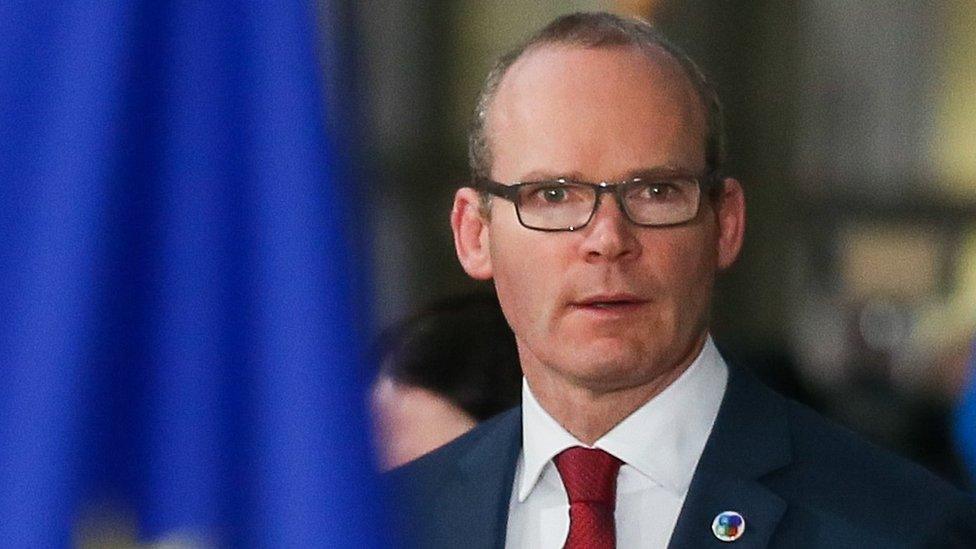Tony Blair believes NI deal 'still possible' but warns over Brexit
- Published
Tony Blair says NI impasse needs government's full focus
Former PM Tony Blair has said he believes a solution to the current deadlock at Stormont is possible.
Northern Ireland has been without an executive since January 2017, when the governing parties - the DUP and Sinn Féin - split in a bitter row.
"I can't believe it's not possible to find a way round it," Mr Blair said in an interview marking 20 years since the Good Friday agreement.
"It's very similar to the types of issues we used to deal with," he said.
"You've just got to keep working at them until you find a way through."
Mr Blair played an integral part in the 1998 Good Friday Agreement, which brought an end to The Troubles in Northern Ireland.
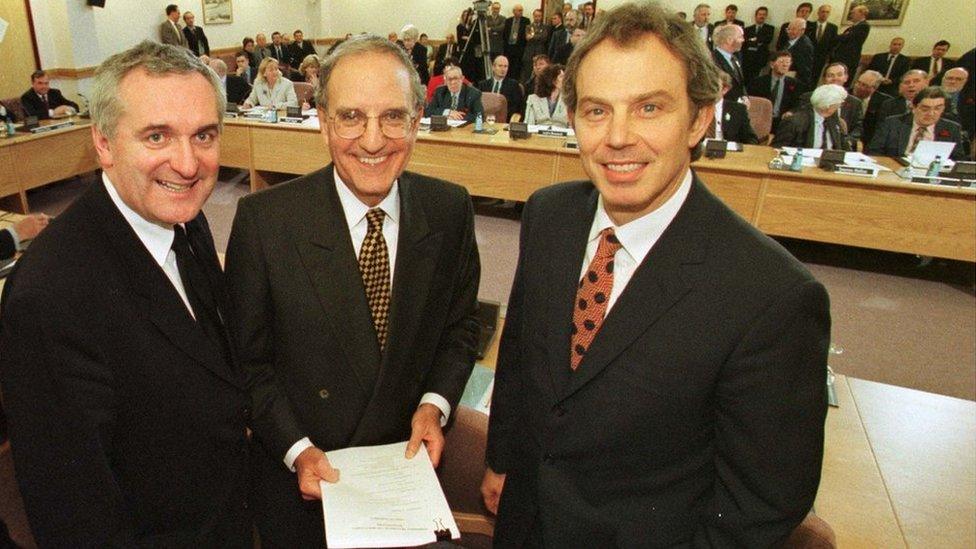
Bertie Ahern, George Mitchell and Tony Blair helped broker the 1998 Good Friday Agreement
He said he thinks Prime Minister Theresa May can make progress, but that it will require "constant work" and her full authority.
Mr Blair also said the UK must work very hard to overcome the immediate challenges and future consequences of Brexit.
Mrs May has faced criticism from those who think her "hands-off" approach and parliamentary alliance with the DUP had undermined her authority in Northern Ireland.
Several rounds of negotiations aimed at restoring the power-sharing coalition ended in failure last year.
But Mr Blair thinks she still can broker a deal.
"I'm sure she can do it, because to be fair to her I'm sure she wants to keep the Good Friday Agreement and she wants to make sure it works satisfactorily," he said.
"But I think they need to realise that this requires the full focus of government at certain points in time.
"Remember, we went through setting up the new Northern Ireland police service, decommissioning Drumcree, external, there were all those things happening and at a certain point the authority of the prime minister is necessary in order to get people to move and to come into some form of alignment.
"I think it's constant work."
'Border tension'
Mr Blair has made no secret of his opposition to Brexit in general and its impact on Northern Ireland in particular.
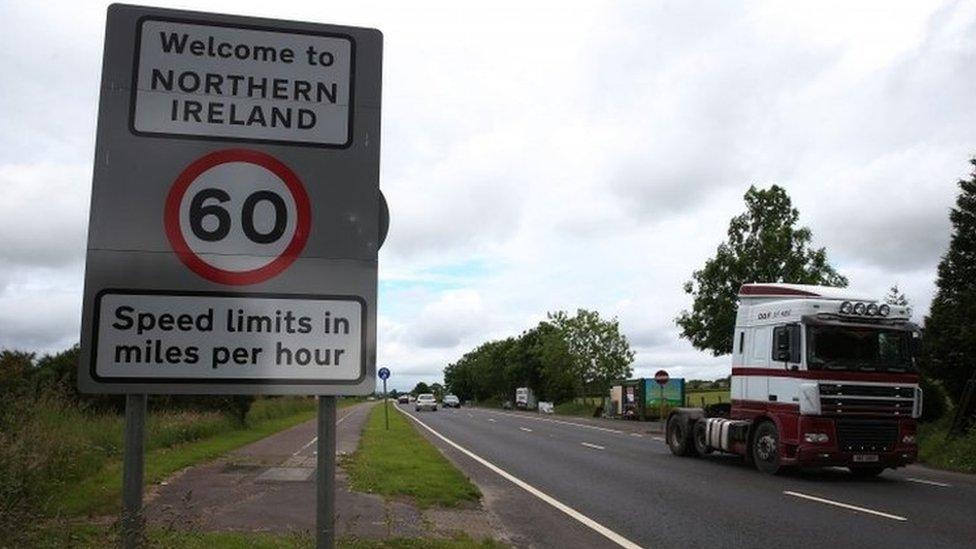
Mr Blair said he was concerned over the possibility of border check points after Brexit
When asked if Brexit had the potential to reignite violence in Northern Ireland, he replied: "Not of itself, it won't.
"But, if what it does, is provide significant disruption to that idea at the heart of the Good Friday Agreement - that of the recognition of nationalist aspirations, if it disrupts that because the border becomes a hard border and you have some sort of border checks and freedom of movement becomes more difficult, then it's got the potential to cause tension.
"Now, that shouldn't ever justify or end up in violence, but it will give a different complexion to the nationalist aspirations."
Mr Blair added that he found Northern Ireland unionists' opposition to membership of the EU a "really strange consideration".
He said the interests of Northern Ireland "must be with remaining part of the EU, because it just makes life so much easier with the border".
'Natural allies'
Mr Blair now spends his time working on other areas of conflict like the Middle East and Africa.
But he remains proud of his role in negotiating the Good Friday Agreement, despite the current political vacuum at Stormont.
"The truth is the agreement was never going to simply, the day after it, usher in a great new world when everything was going to be fine," Mr Blair said.
"But where we are today should be compared not with the ideal world but with where we were.
"When you compare that you realise, one, that it was a huge achievement for everyone concerned to bring about the agreement and, secondly, it's worth keeping and it would be dangerous and foolish to put it at risk."
During the Good Friday Agreement negotiations, Mr Blair and his Irish counterpart Bertie Ahern operated as a team.
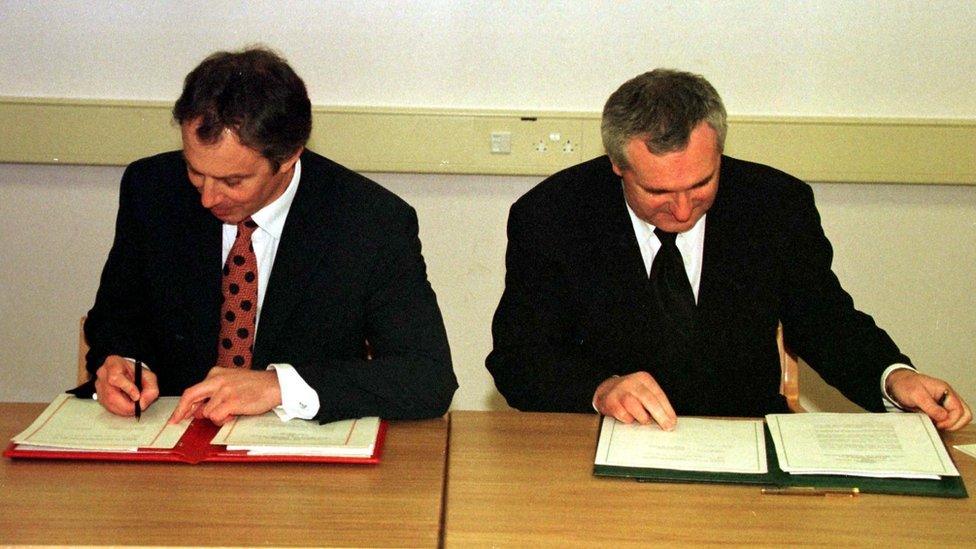
Tony Blair and the former Taoiseach (Irish PM) Bertie Ahern signing the Good Friday Agreement
So, is he dismayed about the recent tensions between London and Dublin over Brexit?
"Yes, I'm worried about it because that relationship wasn't just a personal relationship between myself and Bertie Ahern, it was that the two countries were natural allies," he said.
Mr Blair said there had been many "positive changes" in Anglo-Irish relations that happened partly because both the UK and Ireland were "part of that family of European countries".
"My only point about this is not going over the top and saying 'if we do Brexit we're going to scrap the Good Friday Agreement and [there's] going to be a return to conflict'.
"I'm simply saying that it's going to post a big challenge and it's going to mean this government is going to have to work very hard to overcome that challenge, not just the immediate challenge of Brexit, but the consequences of that as they reverberate in the years ahead."
- Published3 December 2017
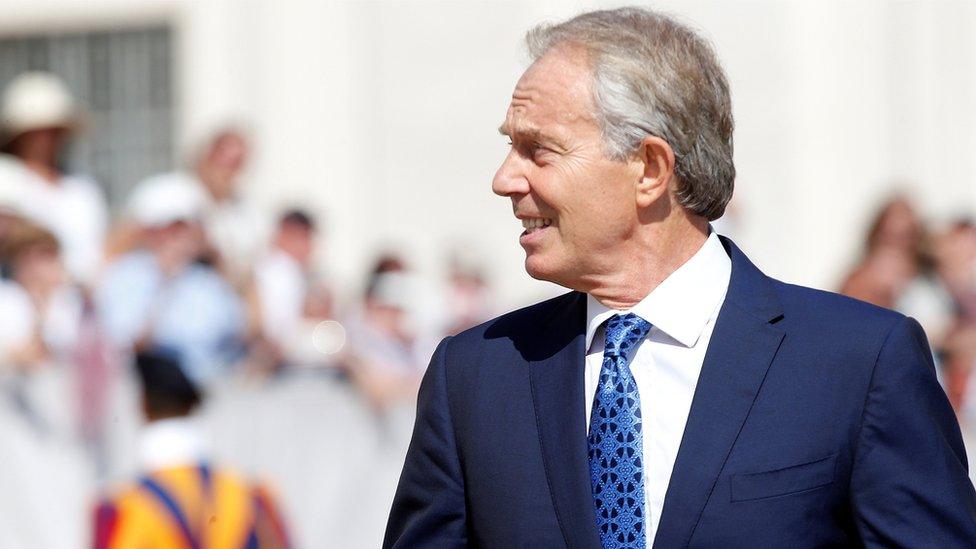
- Published30 November 2017
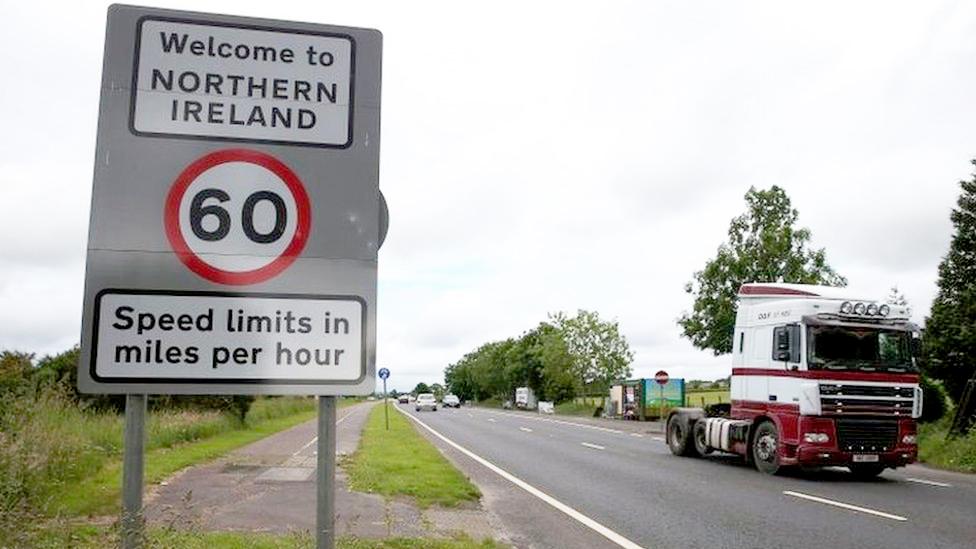
- Published29 November 2017
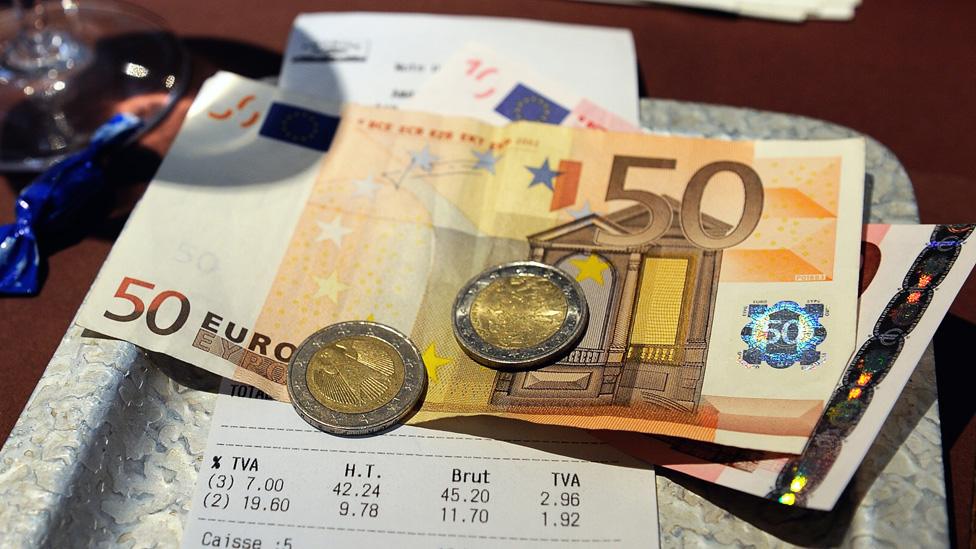
- Published15 July 2017
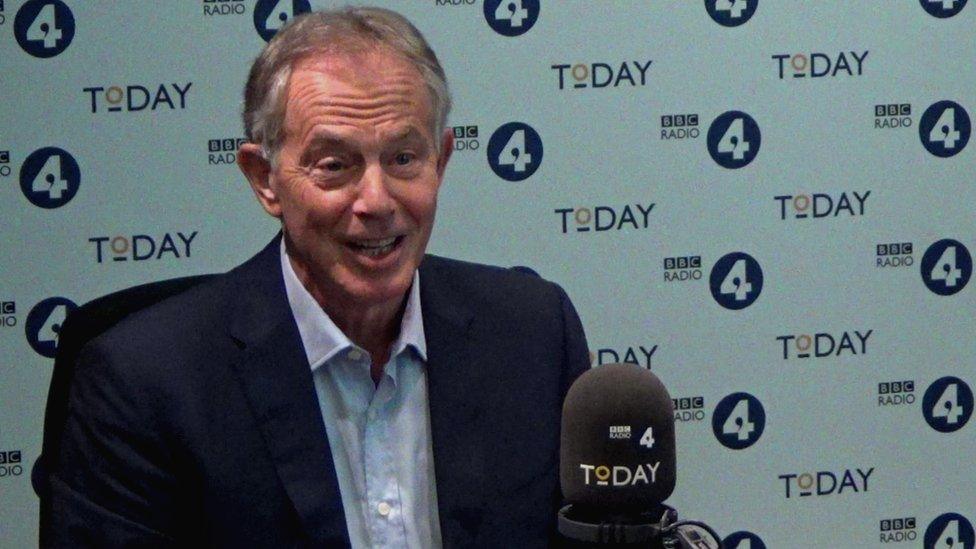
- Published3 December 2017
